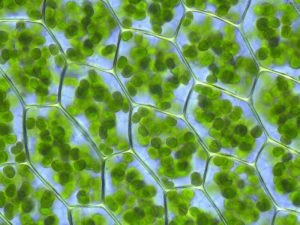Chlorophyll holds some potential as a greens supplement, but research evidence is lacking.

- Antioxidant activity. Chlorophyll appears to have antioxidant qualities.
Overview
Chlorophyll is the pigment compound that gives plants their green color. Plants, algae, and some bacteria use chlorophyll to help capture energy from sunlight through photosynthesis.
Chlorophyll has been suggested to play a role in the health benefits of fruits and vegetables, prompting increasing interest in the use of chlorophyll-rich plants such as wheat grass, spinach, and alfalfa and isolated chlorophyll as a greens supplement. However, because it is not a very stable substance, most supplements replace chlorophyll with a semi-synthetic, water-soluble derivative called chlorophyllin.
Chlorophyll and chlorophyllin have been suggested to have beneficial effects such as:
- Stimulating the immune system
- Aiding digestive health
- Antioxidant activity
- Helping with anemia
- Alleviating diabetes
However, there is currently little research evidence to back most of these proposed effects.

How Chlorophyll Might Improve Your Health
Antioxidant activity
Chlorophyll derivatives – including chlorophyllin – have been reported to possess antioxidant qualities that can help protect cells from damage caused by reactive oxygen species (ROS). 1
Potential interaction with hemoglobin
Chlorophyll shares a similar structure with hemoglobin – the protein that carries oxygen in red blood cells. The only major difference between the two is that chlorophyll’s central, metallic atom is magnesium, whereas hemoglobin’s is iron. Because of this, it has been suggested that chlorophyll consumption might increase hemoglobin production. However, this mechanism of action remains theoretical.

Chlorophyll’s Potential Uses & Benefits
As a greens supplement, chlorophyll and chlorophyllin are advertised to have general health benefits including improved energy levels, weight loss, digestion, immune system function, and skin health. In addition, it is believed to support blood health by helping produce hemoglobin, the protein that carries oxygen in the blood. However, these claims are not supported by medical research. As it stands, the only research-backed benefit of chlorophyll may be its antioxidant activity.
Clhorophyllin have also been used since the 1940s to help speed up healing of wounds and as an “internal deodorant,” particularly for reducing bad body odor during colostomy surgery.
Research
Animal & Petri Dish Research
Cell culture and animal studies of chlorophyll and its derivatives suggest a number of beneficial activities. Specific findings indicate that:
- Chlorophyllin is a potent antioxidant, particularly capable of protecting mitochondria (the energy-generating parts of a cell) from oxidative damage 3 4
- Chlorophyll derivative phytanic acid may have anti-obesity and anti-diabetic effects similar to conjugated linoleic acid (CLA) 5 6
Human Research
Wheat grass juice (containing ~70% chlorophyll) appears to support blood health
This study examined the efficacy of wheat grass in thalassemia, a blood condition resulting in abnormal hemoglobin. Thirty-eight patients drank 100 ml of wheat grass juice daily for over a year, and compared their blood transfusion requirements (by amount of packed red cells used) to the year before.
The study found that about half the people taking wheat grass needed significantly fewer (25-40%) blood transfusions, suggesting that it helped them replenish hemoglobin.
- The researchers concluded that “wheat grass juice has the potential to lower transfusion requirements in thalassemics.“7
Chlorophyll Greens Dosage
- There is currently no research-supported dosage of chlorophyll or chlorophyllin
- Chlorophyll supplements are typically dosed in tablespoons or drops
Available Forms
- Liquid sodium copper chlorophyllin is the most common form of chlorophyll supplements, because it is stable and water-soluble unlike chlorophyll.
- Chlorophyll can also come in the form of chlorophyllin tablets, softgels, and capsules.
Supplements in Review Says
- Chlorophyll as chlorophyllin.
We do not recommend chlorophyll at this time. While supplement manufacturers love to advertise that chlorophyll has many health benefits, the truth is most of them remain unsupported by medical research.
It’s best to follow supplement dosage recommendations. There isn’t enough research to suggest the ideal dose of chlorophyll or chlorophyllin; as such, it’s best to follow the doses recommended by supplements.
Leave a Reply